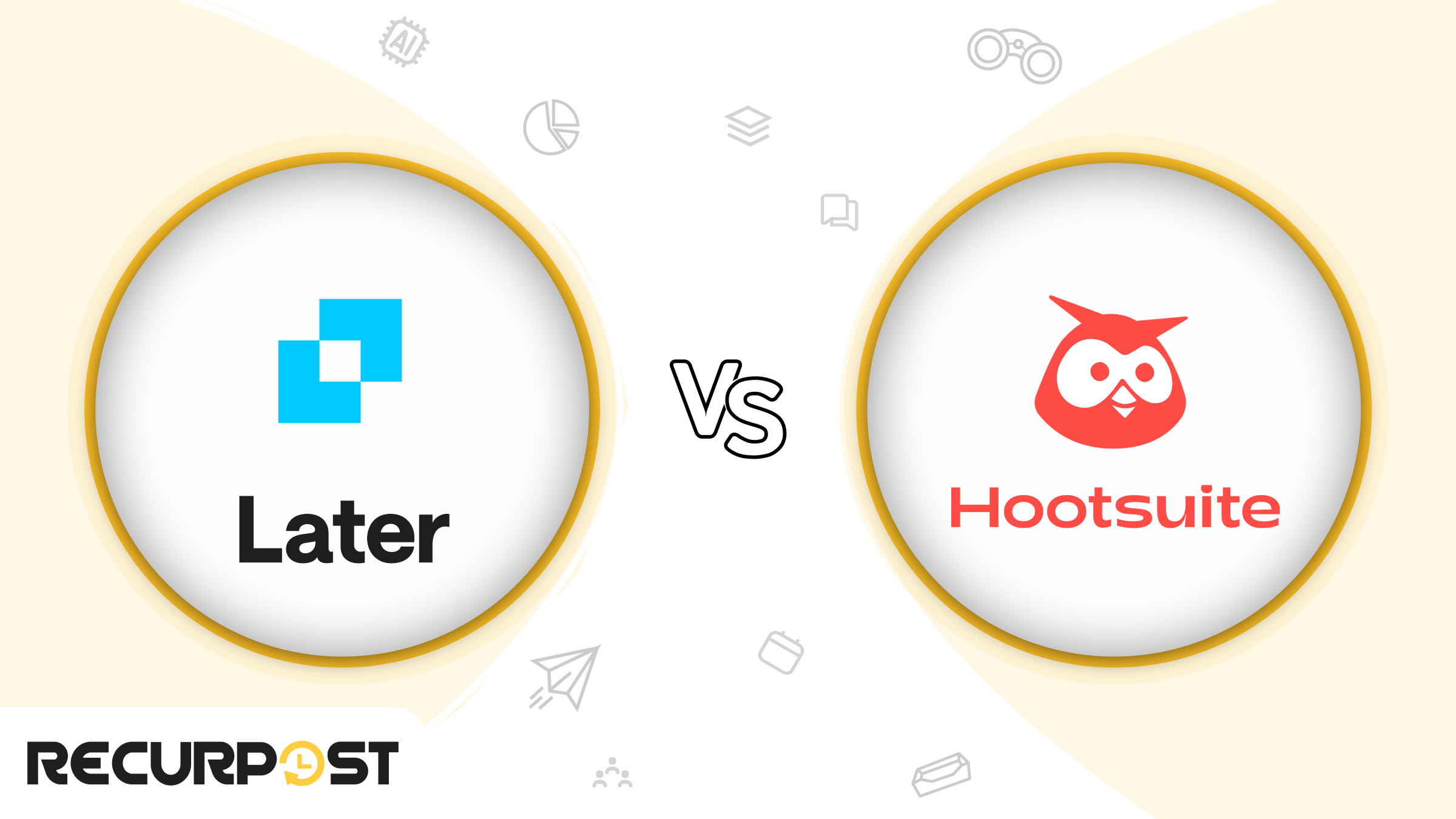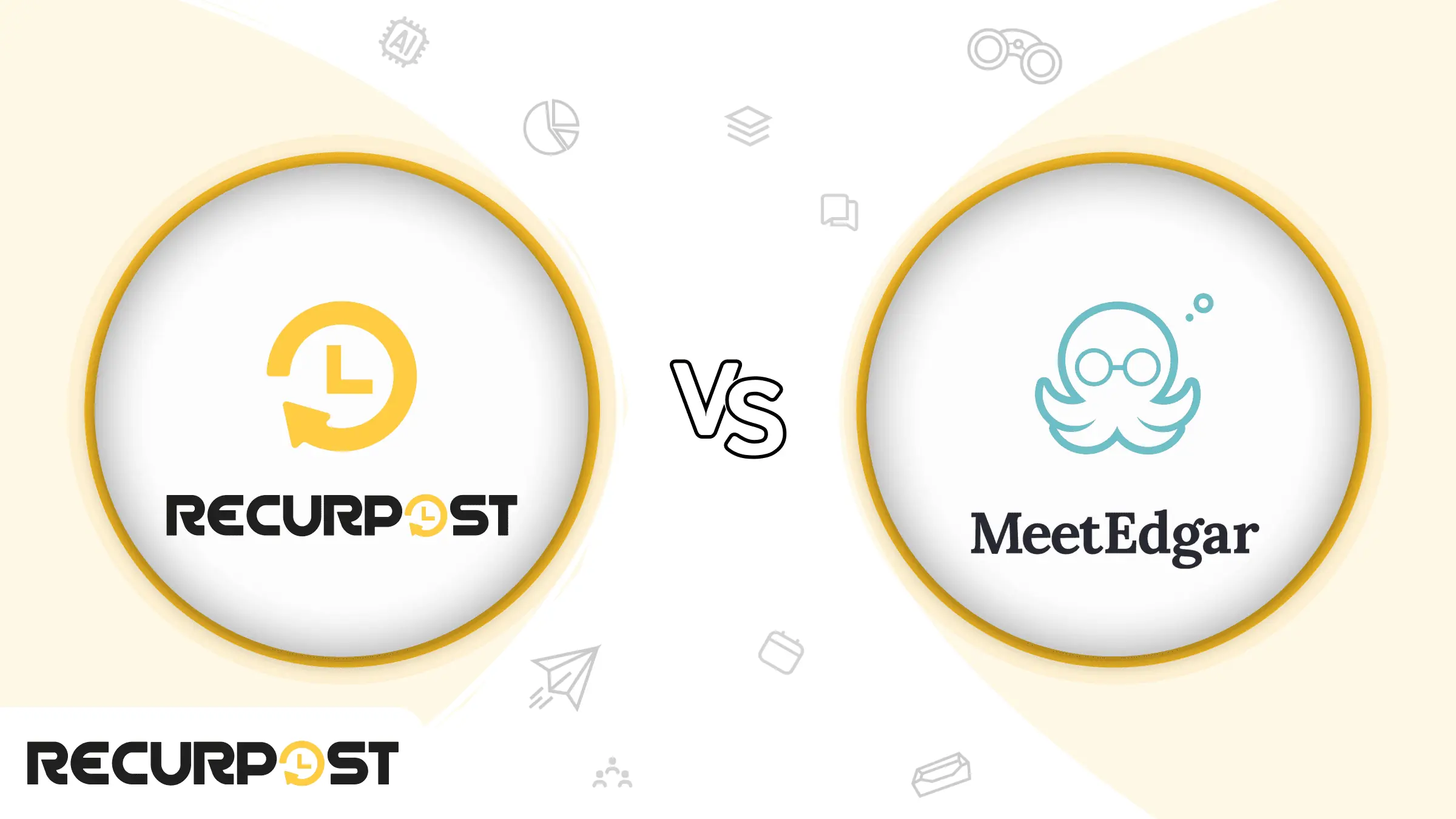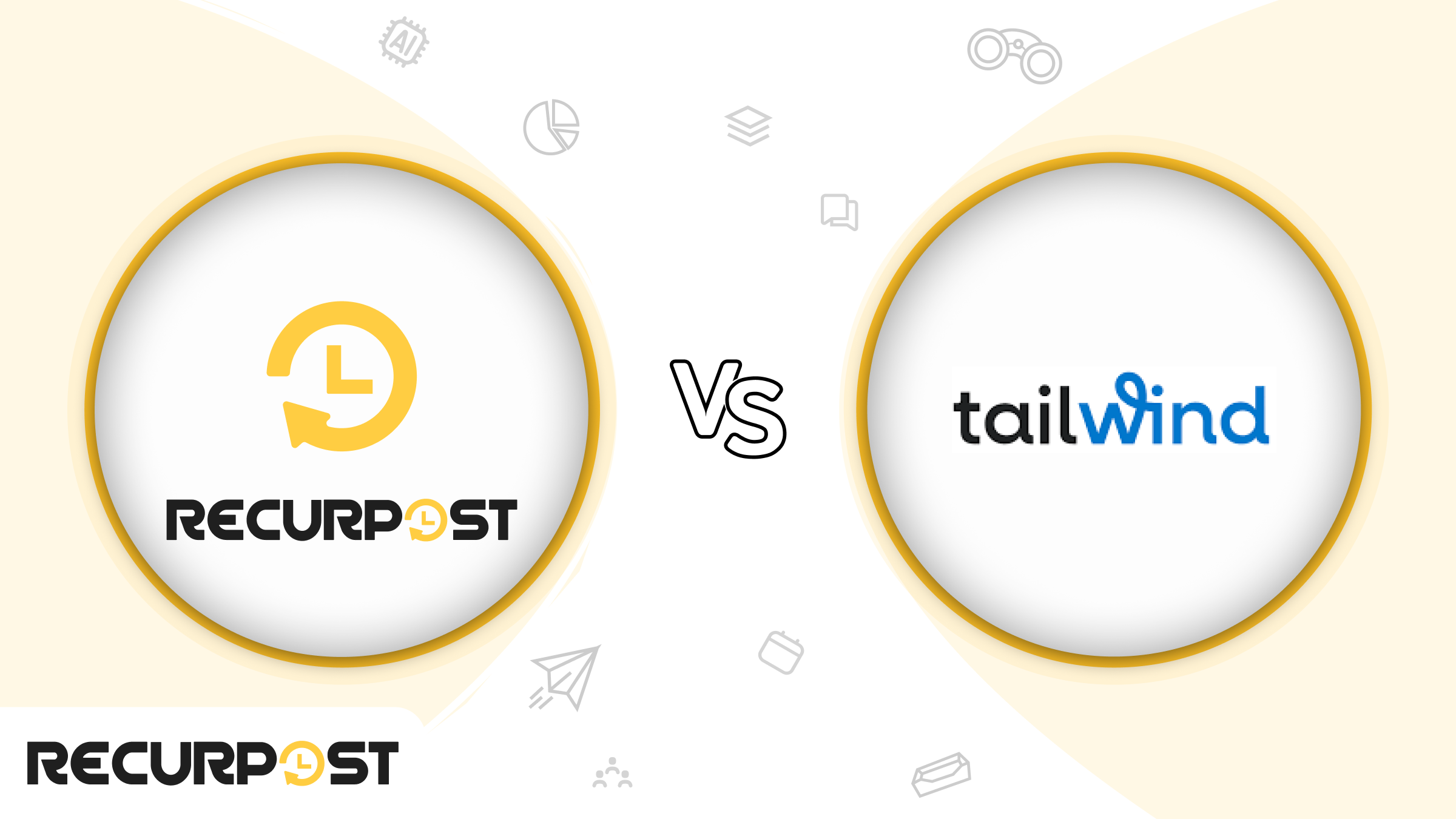Planoly and Hootsuite are both social media management tools, each with its own set of features and benefits. Understanding the differences between these platforms is critical when it comes to effectively managing your social media presence.
Choosing the right social media management tool can be a confusing endeavour with so many options on the market. However, we at RecurPost are here to simplify this choice for you. We’re experts in this field and can provide you with a balanced viewpoint so that you can make an informed decision.
What is Planoly?
Planoly, on the other hand, puts its focus on visual planning, predominantly for platforms like Instagram, TikTok, and Pinterest. Its emphasis on aesthetics, bulk scheduling, and advanced analytics makes it a favored tool, especially for brands and influencers who rely heavily on visual appeal.
One of its standout advantages is its user-friendly interface, designed for simplicity and efficiency. This intuitive layout ensures that users, regardless of their level of expertise, can easily navigate the platform. It simplifies tasks such as scheduling posts and managing content, allowing users to focus on creating engaging content without getting lost in complex features.
Another feature that separates Planoly from other social media management tools is its visual planning capability. This unique tool allows users to preview how their next Instagram posts will look in their feeds. Users can create a visually appealing and unified look by dragging and dropping images, appealing to their audience as they scroll through their profile. With Planoly’s visual planning, maintaining a consistent brand image has never been easier.
While Planoly excels in managing Instagram content, it’s important to note that its platform support is limited, which can be a drawback for users looking for a comprehensive solution to manage multiple platforms. For those seeking more versatile options, exploring Planoly alternatives might be a worthwhile consideration.
What is Hootsuite?
Hootsuite is an all-encompassing social media management platform equipped to handle multiple social networks, including Twitter, Facebook, Instagram, and LinkedIn. With its unified dashboard, Hootsuite offers features like post-scheduling, social listening, detailed analytics, and collaborative tools. This versatility caters to businesses and agencies of all sizes, establishing it as a go-to option for comprehensive social media management across various platforms.
The content discovery option in Hootsuite is an excellent method to identify relevant information for your social media accounts. You can search for content using keywords, hashtags, or subjects, and Hootsuite will return a list of articles, photographs, and videos to share on your social network accounts. Hootsuite’s analytics function gives you information about your social media accounts, such as follower growth and engagement rates.
Hootsuite offers a mix of features like social inbox but lacks in areas such as recurring posts and advanced analytics. Exploring Hootsuite alternatives could be a worthwhile option for those seeking a more tailored social media management solution.
Planoly vs Hootsuite: User Rating
| Rating Categories | Planoly | Hootsuite |
| Star Rating (Out of 5) | 4.3 | 4.1 |
| Meets Requirements (Out of 10) | 8.6 | 8.3 |
| Ease of Use (Out of 10) | 8.7 | 8.4 |
| Ease of Setup (Out of 10) | 9.1 | 8.4 |
| Ease of Admin (Out of 10) | 8.9 | 8.5 |
| Quality of Support (Out of 10) | 9.0 | 7.9 |
| Business Partnership (Out of 10) | 7.8 | 8.3 |
| Product Direction (% positive) | 8.1 | 7.3 |
Planoly vs Hootsuite: Feature Comparison
| Features | Planoly | Hootsuite |
| Pricing (per month in USD) | $16 | $149 |
| Free Trial | Yes | Yes |
| Platforms Supported | Instagram, TikTok, Pinterest | Facebook, Instagram, Twitter, LinkedIn, and more |
| Bulk Scheduling | Yes | Yes |
| RSS feeds | No | No |
| Recurring Posts | No | No |
| Social Inbox | No | Yes |
| AI Content Generation | No | No |
| Hashtag Storage | No | Yes |
| Caption Customization | No | No |
| AI Images | No | No |
| Advanced Analytics | Yes | No |
| White Label Reports | No | No |
| URL Shortener | No | No |
| Unlimited Workspaces | No | No |
| Team Management | Yes | No |
Pros and Cons of Using Planoly
Pros:
- Lower cost
- User-friendly
- Strong in analytics
Cons:
- Limited platform support
- No recurring posts
- Limited features like a social inbox and hashtag storage
Pros and Cons of Using Hootsuite
Pros:
- Wide range of platform support
- Has a social inbox
- Offers hashtag storage
Cons:
- More expensive
- Lower user ratings in a setup and support
- Limited advanced analytics
Planoly vs Hootsuite – The Bottom Line
While both Planoly and Hootsuite have their merits, the right tool for you will depend on your specific needs and budget.
Planoly is a more budget-friendly option but comes with limitations in features and supported platforms. Hootsuite offers a broader spectrum of features but at a significantly higher cost.
RecurPost as an alternative to Hootsuite and Planoly
If you’re caught between Planoly and Hootsuite, why not consider RecurPost? It offers the best of both worlds at an affordable price.
| Feature | RecurPost | Planoly | Hootsuite |
| Pricing (per month in USD) | $25 | $16 | $149 |
| Free Trial | Yes | Yes | Yes |
| Bulk Scheduling | Yes | Yes | No |
| AI Content Generation | Yes | Yes | No |
| Advanced Analytics | Yes | Yes | No |
| Team Management | Yes | Yes | No |
| Platform Support | Facebook, Instagram, Twitter, LinkedIn, Pinterest, Google Business Profile, YouTube, TikTok | Facebook, Instagram, Twitter, LinkedIn, Pinterest, Google Business Profile, YouTube, TikTok | Facebook, Instagram, Twitter, LinkedIn, Pinterest, TikTok |
| Caption Customization | Yes | Yes | Yes |
| URL Shortener | Yes | Yes | No |
| White Label Reports | Yes | Yes | No |
The Question Isn’t Planoly Vs. Hootsuite — It’s Why Not RecurPost?
When it comes to a well-rounded, affordable, and feature-rich social media management tool, RecurPost stands out.
Why juggle between limited features and high pricing when you can get the best of both worlds with RecurPost?
Our commitment to user satisfaction, affordability, and feature-rich offerings makes us the ultimate choice. We can’t wait for you to join our community!







